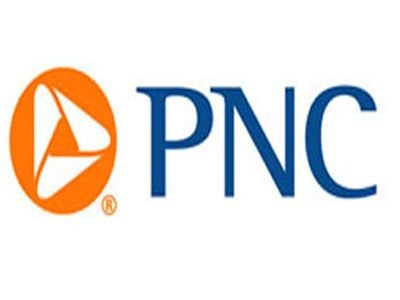PNC Financial Services (NYSE:PNC), the second largest U.S regional bank not only faces stiff competition due to industry consolidation but tough economic times as well.
PNC stock rushed up 19% during the current year. The bank faces a major decision. Let’s review the bank’s past performance and see what would be the implication of PNC Financial selling or not selling its BlackRock, Inc. (NYSE:BLK) stake.
Satisfactory earnings
Despite weaker lending, PNC Financial Services (NYSE:PNC) reported good results at the end of the first quarter. During the first quarter of 2013, the bank reported net income of $1 billion, up 40% over the fourth quarter of 2012. This growth was driven by the combination of customer growth and abridged expenses. Net interest margin declined 4 basis points (bps) sequentially to 3.81%, while asset quality improved. Net charge-offs were up 47% quarter-to-quarter, to $456 million, for the first quarter. Growth in the bottom line is also aided by a 26% decline in the provision for credit losses.
Among all business segments, Corporate & Institutional Banking reported a higher net income of $541 million followed by Retail Banking and the Non-Strategic Assets Portfolio with net income of $120 million and $79 million, respectively. PNC Financial increased its dividend to $0.44 per share from $0.40 per share.
BlackRock a reliable source of income
PNC Financial Services (NYSE:PNC) recorded “Other income, including BlackRock” of $176 million up 266% quarter over quarter. PNC Financial has a 21% stake in BlackRock, Inc. (NYSE:BLK), a multinational investment management corporation.
PNC acquired its BlackRock stake in 1995 for about $240 million. PNC Financial is now facing a dilemma whether to sell or hold its BlackRock stake. As of today, the $9.46 billion investment accounts for 25% of the total PNC Financial’s market cap. BlackRock is a profitable business and reliable source of income for PNC Financial. Last year alone, PNC Financial drove 13% of its profit from BlackRock.
BlackRock’s first quarter revenues rose 9% to $2.5 billion beating analyst estimates of $2.43 billion. The increase in revenues was largely due to growth in capital markets and higher performance fees. Profits jumped 10% to $632 million. Total operating expenses were $1.5 billion increased $106 year-over-year, driven by an increase in employee compensation cost and general and administrative expenses.
PNC Financial’s stake in BlackRock, Inc. (NYSE:BLK) is a major source of stable earnings for the bank. BlackRock’s profit is mounting every year, and it is a solid investment for PNC. PNC Financial has already reduced its stake by selling 7.5 million shares for $1.22 billion in 2010.
If PNC decides to sell its stake, it would end up losing a significant chunk of its profits.
In case PNC Financial Services (NYSE:PNC) decides to sell its stake, analysts estimated the bank will receive after-tax proceeds of $6.8 billion, and assume that PNC Financial could then repurchase 96 million shares of its common stock. Based on declining earnings from BlackRock and a lower share count after buyback, analysts estimated that PNC Financial will earn $6.60 a share this year, with EPS rising to $6.70 in 2014 and a raised price target to $78.
Cost cutting and focus on interest income should be the future
Due to restructuring and a number of acquisitions in previous years, PNC Financial has improved its banking activities. Its acquisitions of RBC Bank (USA) and the retail operations of Royal Bank of Canada positively impacted bank earnings.
PNC Financial needs to focus on the weakness in its net interest margin. Cutting down on expenses is a key future driver of profit increases. As a cost cutting exercise, PNC Financial plans to close about 200 retail branches this year which would reduce expenses by $700 million. The bank has closed 65 branches in the last year.
Capital base needs strengthening
At the end of the first quarter, PNC Financial reported lower Basel 1 Tier 1 capital, compared to its peers like SunTrust Banks, Inc. (NYSE:STI) and Capital One Financial Corp. (NYSE:COF). PNC Financial reported a Basel 1 tier 1 common ratio of 9.8%, compared to Capital One’s and SunTrust’s 11.8% and 10.1%, respectively.
However, PNC Financial has a higher net margin of 24%, compared to Capital One’s and SunTrust’s 15% and 16%, respectively. The sale of PNC Financial’s stake in BlackRock, Inc. (NYSE:BLK) will make $6.8 billion available to PNC Financial, some of which could be used to increase its capital base. A robust capital base is important for banks since it’s the key criteria for the Fed’s stress tests. Therefore, I believe PNC Financial should sell its stake in BlackRock to strengthen its capital and liquidity position.
A look at peers
Capital One is one of the largest U.S. credit card lenders. Despite the revenue decline of 3% in the first quarter of 2013, the bank’s net income surged 26% to $1.1 billion. Non-interest expense was $3.0 billion, a decrease of $227 million, or 7%, driven largely by lower amortization expense and acquisition-related costs including integration.
SunTrust operates as the holding company for SunTrust Bank that provides various financial services in the U.S. Continued expense reductions drove its EPS to $0.63 per average common diluted share, compared to earnings per share of $0.46 at the end of the first quarter of last year. Shares are up 8% year to date. However, SunTrust has a culture of better expense management which will be a key driver for its future growth.
Conclusion
I believe PNC Financial Services (NYSE:PNC) should sell its stake in BlackRock, Inc. (NYSE:BLK) and use some of the proceeds to strengthen its capital and liquidity positions which lag behind its peers. However, due to strengths in many areas like mounting margins, hike in share price, increasing dividend and net income, I am bullish on PNC Financial. These strengths will help PNC Financial to outperform in the future.
The article Should PNC Sell Its Stake in BlackRock? originally appeared on Fool.com.
Red Chip has no position in any stocks mentioned. The Motley Fool recommends BlackRock. The Motley Fool owns shares of PNC Financial Services. Red is a member of The Motley Fool Blog Network — entries represent the personal opinion of the blogger and are not formally edited.
Copyright © 1995 – 2013 The Motley Fool, LLC. All rights reserved. The Motley Fool has a disclosure policy.






